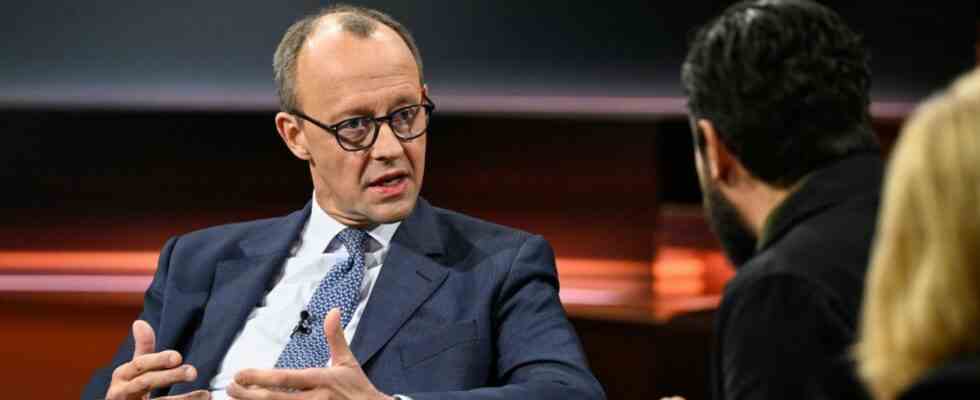For Mario Czaja the problem of the CDU is obvious. The 30 percent mark is currently “a glass ceiling” for the Union, says the Secretary General. In order to have another chance at the chancellor’s office, she has to break through this ceiling. Therefore, the CDU should take care of three groups where the party has “acceptance problems”: women, young families with children and migrants. That’s how it is for Czaja Süddeutsche Zeitung said just before Christmas. There are almost eight million eligible voters with a migration background in Germany. That is a huge reservoir of possible votes.
But the CDU seems to have forgotten Czaja’s appeal again. The tone in which some Christian Democrats are reacting to the New Year’s Eve riots also deters many who are themselves shocked by the riots and are calling for tougher government action. The Berlin CDU asked for the first names of those arrested. And Friedrich Merz lost touch with Markus Lanz at some points in the conversation – as he did in the debate about refugee policy when he spoke of “social tourism”. Merz doesn’t really score with women and young families anyway – now he’s also scared off migrants.
Serap Güler made a much more differentiated statement about the New Year’s Eve riots than Merz
In the CDU it is still comparatively quiet. This may also be due to the fact that the party headquarters is said to have received a lot of positive feedback from the grassroots. After the many Merkel years, there is obviously a need for a clear debate and clear positions in the CDU – especially on this topic. And if you were to do a first name check on the federal executive board, you would come to the conclusion that, apart from a Serap and a Joe, there were only people with German first names. Perhaps this is also the reason for the lack of a feeling for how statements like Merz’s are received by many migrants. In any case, Serap Güler made a much more differentiated statement about the New Year’s Eve riots than Merz.
The vote on the Residence Act in December showed that there is also resentment in the CDU about the course taken by the leaders in migration and integration policy. At that time, 20 Union MPs abstained instead of rejecting the law like the majority of the parliamentary group. Among those who abstained were many well-known Christian Democrats such as Armin Laschet, Hermann Gröhe, Helge Braun, Monika Grütters, Serap Güler, Anja Karliczek, Norbert Röttgen, Yvonne Magwas and Annette Widmann-Mauz. There should therefore be an extra meeting of the Union faction on the topics of migration and integration – but only on January 24th. Because the topic should not overlay the exam of the CDU leadership, which begins this Friday in Weimar. With his statements, however, Merz himself has ensured that this should not succeed.
The CDU leader sees with sorrow that his party’s economic competence is no longer as great as it used to be. At the two-day retreat he would therefore like to talk primarily about the topics of economy, energy and climate. One of the interlocutors will be Clemens Fuest from the Ifo Institute. At the end of the exam, the Federal Executive Board wants to adopt a “Weimar Declaration”. A draft for this is already being passed around internally. It states that the current energy crisis is an “opportunity to renew our economy, reposition our industry and make our country carbon neutral”.
The CDU wants to “make climate protection ‘Made in Germany’ an export hit”
The CDU is a “climate protection party”. She wants to “make climate protection ‘Made in Germany’ an export hit”. This requires market-based incentives instead of excessive regulation and an “ideology-free” expansion of the energy supply. The CDU wants to “break the shackles of bureaucracy” and “stop climate change” with innovation and technology.
The draft states that “climate neutrality will not be achieved simply by avoiding carbon dioxide emissions”. Emissions not only have to be avoided, but “also separated, stored and used”. You also need “competitive taxes and duties, flexible labor markets and additional skilled workers in all areas of our economy, including public administration”.
But when the exam ends on Saturday afternoon, Merz will most likely not be asked about all of this, but above all about his party’s attitude towards citizens with a migration background.

